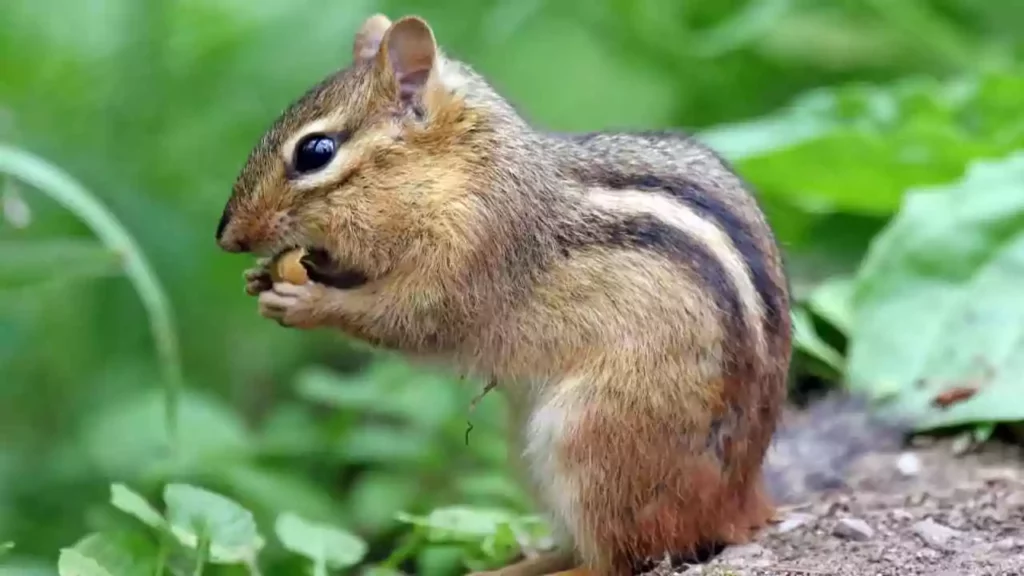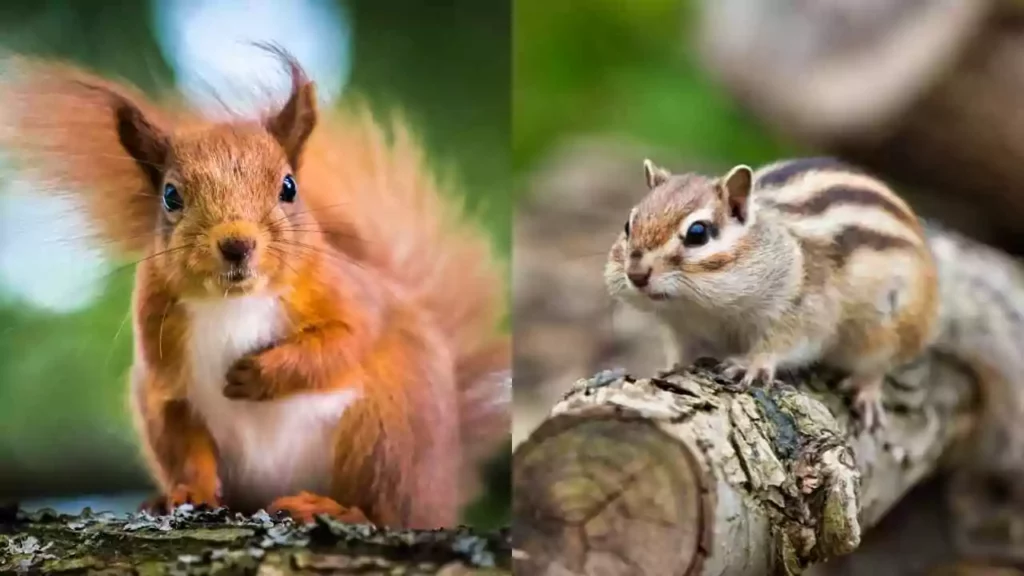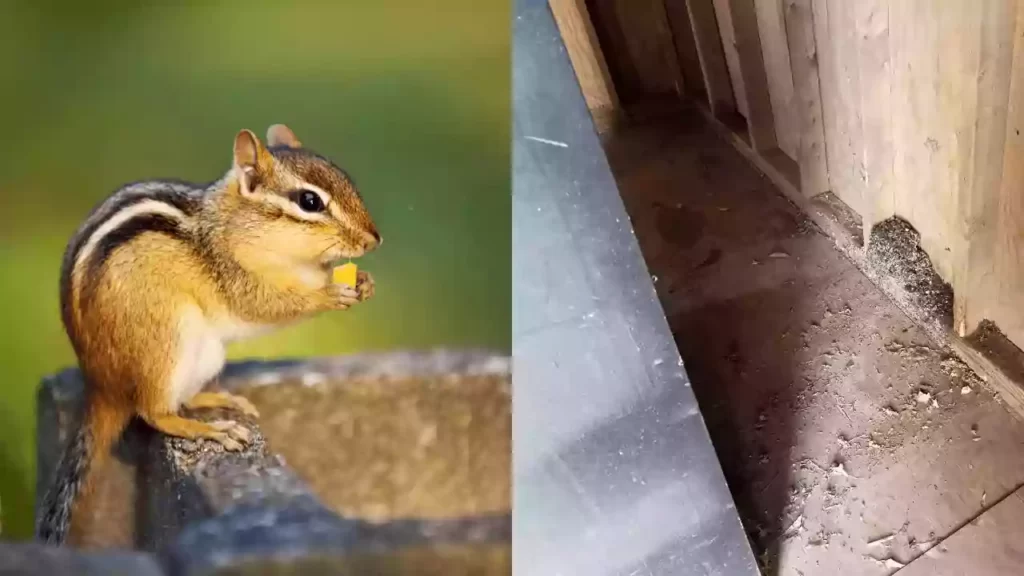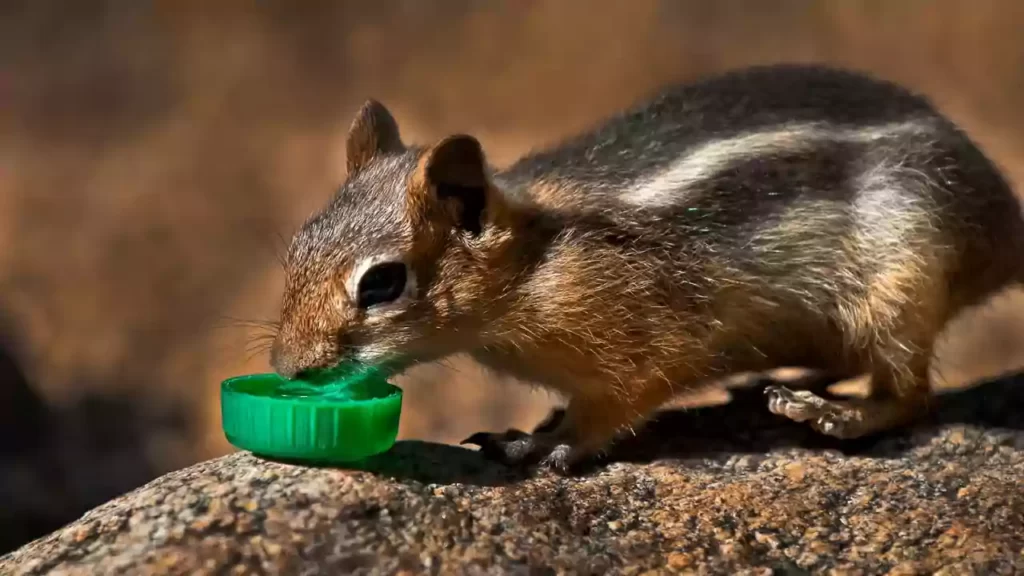Have you just gotten an adorable little chipmunk? Congratulations! Chipmunks surely make cute pets.
Chipmunks have 4 forward directing incisor teeth that grow continuously. Canine teeth are absent while cheek teeth are present. Chipmunk teeth are small but sharp like a chisel and help to efficiently chew the nuts, seeds, and hardwood.
Chipmunks are friendly small size pets, weighing from 1 to 5 ounces only. You have probably already seen them on a hike or in a park.
Most of the chipmunk population lives in the wild. Geographically, you can find chipmunks all around the world except for Antarctica.
Like rabbits and squirrels, the teeth of chipmunks grow continuously and they need to be worn down to stay in proper shape. If you are looking for chipmunk teeth care essentials, don’t worry. We are here to help you.
This article will cater to all of your concerns regarding chipmunk teeth. From the size of the teeth to some fun facts about chipmunks, you can find everything here.
Chipmunk Teeth: How Many Teeth Do Chipmunks Have?
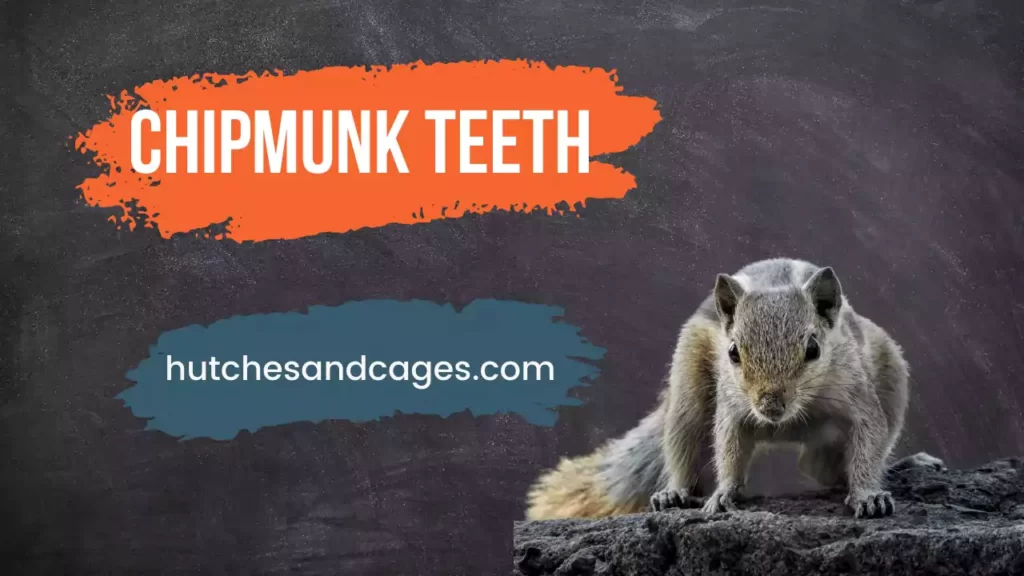
Chipmunks belong to rodents, specifically the squirrel family Sciuridae.
There are four front teeth in a chipmunk’s mouth, known as incisors. The upper and lower incisors are very sharp and grow in the form of semi-circles. A thick sheet called enamel acts as an outer protective covering of teeth. Chipmunks have no canine teeth. So, there is a gap between their incisors and cheek teeth.
As chipmunk teeth never stop growing, they need to continuously trim their incisors by rubbing against each other, with the wooden and other hard surfaces.
Chipmunk Teeth Marks
Chipmunk teeth are strong and leave an impact when they scratch something. If you ever spot a half-eaten nut, sunflower buds, or corn sprouts near a tree, a chipmunk could have taken a bite of it. Their teeth leave sharp, scratchier, and rough imprints.
As chipmunks built burrows to live in, sometimes they may involve damaging the foundations of your house or destroying backyard vegetables.
Do Chipmunks Die When Their Teeth Grow Into Their Brains?
Chipmunk’s teeth grow throughout their life, so they need to gnaw to keep them short and sharp. Yes, it’s an important segment of chipmunk’s life and overgrown teeth can be dangerous.
When their teeth are misaligned, they may not set on each other and the condition is known as “malocclusion”. In such situations, overly grown incisors can tear the opposite tissues and can even extend towards the brain.
It prevents the normal chewing of food and even tissue damage. This causes starvation and consequently death in suffering chipmunks.
Do Chipmunks Have Enlarged Front Teeth For Gnawing?
Yes, chipmunk teeth are enlarged for gnawing, specifically the front teeth. The gap between incisors and the molar teeth makes gnawing very easy for chipmunks. This gnawing also helps them to keep their teeth in proper size and shape.
Do Chipmunks Bite?
Chipmunks can be found roaming around in your backyard or a nearby park. However, they are not very much social and feel threatened by humans and other animals. Chipmunks can bite too, when someone provokes them.
In some cases, wild chipmunks can engage with house pets. But avoid to get very close or corner them, because they can used their sharp teeth against you.
What Should You Do If You Get Bit By A Chipmunk?
If a chipmunk bites you or your pet, wash the affected area with soap and warm water immediately. Depending on the wound, sometimes bacterial infection can start and pain persists.
Unlike bats, raccons and skunks, squirrels and chipmunks have no risk to transmit rabies to humans. However, it’s better to get medical advice.
10 Fun Facts About Chipmunks
- Chipmunks have pouches in their mouths for storing food.
- A newborn chipmunk can be as tiny as a jelly bean.
- A chipmunk can gather more than 150 acorns in a day.
- Chipmunks make specific sounds such as chirps when they sense danger.
- Chipmunks are born without eyesight. They are blind and develop vision later in life.
- A chipmunk can give birth to 4-5 babies.
- Chipmunk burrows can be several feet long and up to 3 feet deep in the ground.
- North America has the largest population of chipmunks in the world.
- They can sleep up to 15 hours a day.
- A group of chipmunks is named scurry.
Do Chipmunks Eat Bugs?
You may have only seen the chipmunk with either a nut or a piece of wood. But they also eat many other things like bugs. Like all other rodents, chipmunks are omnivores. They enjoy both meat and vegetable-based diets.
Sometimes, if they are feeling adventurous, they may consume baby mice or baby birds too.
Interestingly, Chipmunks don’t actively search for bugs to eat. But if they come across one in their way, they will devour that bug in mere seconds.
Final Words
Chipmunk teeth are strong and sharp. Their incisors can quickly chew a nut or wood. If you are thinking of adopting chipmunks as pets, take good care of them, especially their teeth.
Chipmunk self trims their teeth by chewing wood to avoid overgrowth. Make sure that your chipmunk’s teeth do not overgrow, as overgrown teeth can hinder their normal chewing and lead them to starvation.
For your pet chipmunk, nuts, berries, and small fruits make a perfect diet. However, make a wooden piece or bone accessible to them that can help them to sharpen their teeth.
SmallPetsX.Com does not provide veterinary advice. Our aim to help small pet owners understand their pets a little better so that they can provide their pets with the life they deserve. All content is therefore for informational purposes only. If you're concerned about the health of your pet you should seek medical advice from a vet.

